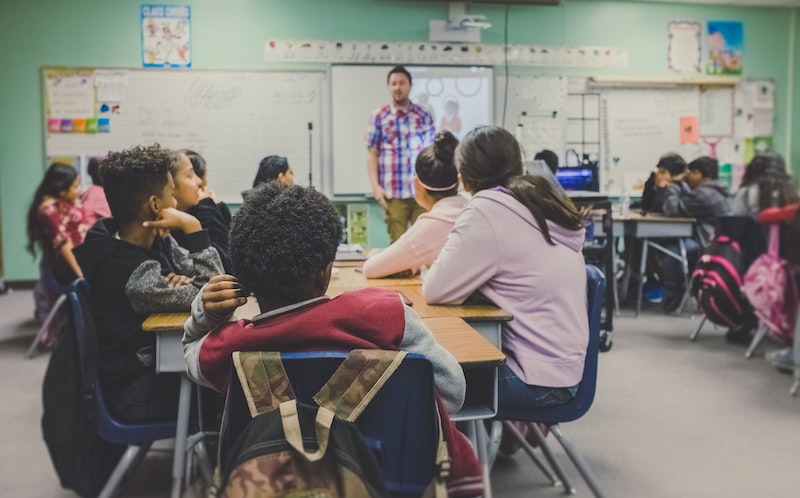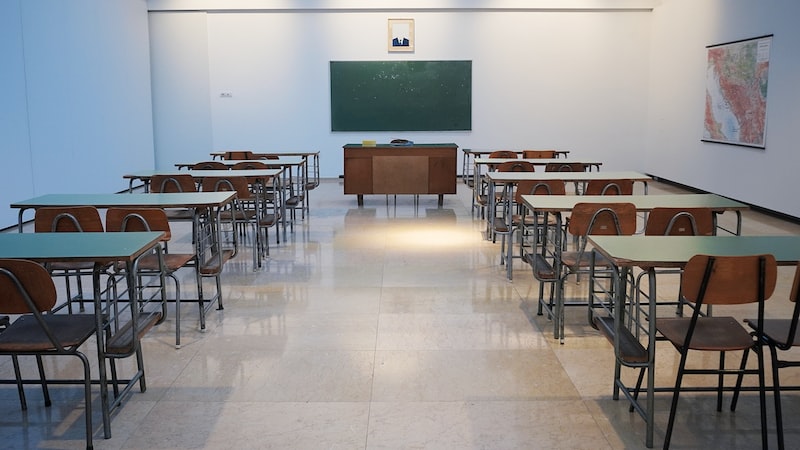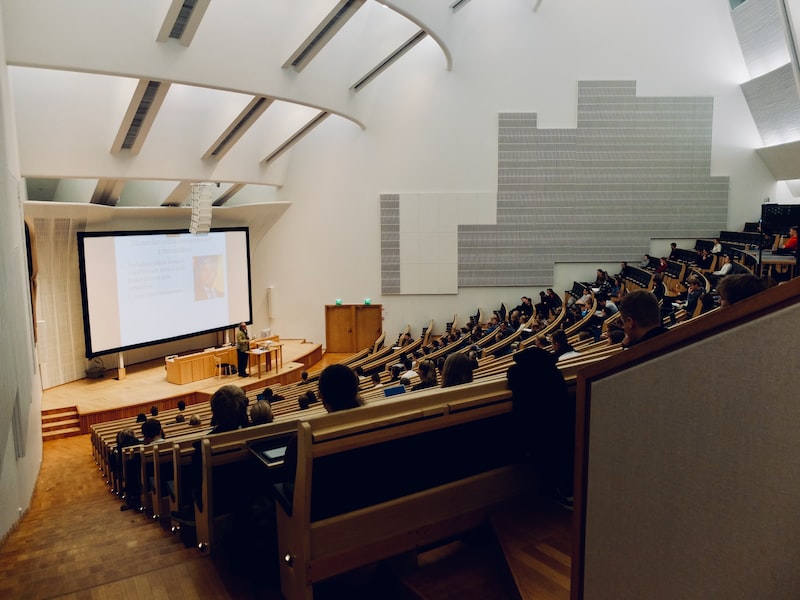Article:
Have you ever wondered why children seem to effortlessly absorb information when they’re engaged in play? It turns out that play-based learning is a powerful tool in early childhood education. By incorporating play into educational activities, teachers and parents can create a stimulating environment that promotes both learning and enjoyment for young learners. Let’s explore the incredible benefits of play-based learning and why it should be an integral part of every child’s education.
One of the remarkable aspects of play-based learning is its ability to ignite a child’s imagination and creativity. When children are immersed in play, their minds are free to explore, experiment, and problem-solve. Whether it’s building with blocks or engaging in pretend play, these activities stimulate their cognitive skills and foster critical thinking abilities. Through imaginative play, children learn to express their thoughts, emotions, and ideas, developing their communication skills along the way.
Moreover, play-based learning encourages social interaction among children. As they engage in cooperative play, children learn how to share, negotiate, and collaborate with their peers. They develop valuable social skills such as empathy and teamwork, which are essential for building strong relationships later in life. By interacting and playing together, children also gain a deeper understanding of different perspectives and cultures, promoting inclusivity and fostering a sense of community.
Play-based learning goes hand in hand with physical development as well. Whether running, jumping, or climbing, active play helps children develop their gross motor skills. Fine motor skills, on the other hand, are honed through activities like drawing, threading beads, or manipulating small objects during play. These physical actions not only promote overall health and fitness but also enhance hand-eye coordination and dexterity, setting a solid foundation for future academic endeavors.

Furthermore, play-based learning creates a positive emotional environment for children. When they are engaged in enjoyable activities, children experience a sense of happiness and fulfillment. This positive emotional state enhances their motivation to learn, making the educational process more effective and enjoyable. Play also allows children to explore and express their emotions, helping them develop resilience, self-regulation, and a healthy sense of self-esteem.
In conclusion, play-based learning is a powerful approach in early childhood education that brings numerous benefits to young learners. By embracing playfulness in education, we can tap into children’s natural curiosity and harness their innate desire to explore and learn. Through play, they develop essential cognitive, social, physical, and emotional skills that will serve as a strong foundation for their future academic and personal success. So let’s encourage play-based learning and witness the transformative impact it has on our children’s education journey.
The Role of Play in Cognitive Development
Have you ever wondered how play impacts our cognitive development? It turns out that play is not just a simple pastime for children, but rather a crucial aspect of their overall growth and learning. In this article, we will explore the fascinating role of play in cognitive development and its profound effects on young minds.
Play can be seen as nature’s way of allowing children to explore and make sense of the world around them. Through various forms of play, such as imaginative play, physical play, and social play, children engage in activities that stimulate their minds and enhance their cognitive abilities.
When children engage in imaginative play, like pretending to be a superhero or playing house, they are using their creativity and imagination. This type of play encourages problem-solving skills, as children need to think on their feet and come up with solutions to different scenarios. By navigating through make-believe situations, children develop critical thinking skills, learn to plan and strategize, and expand their ability to think abstractly.
Physical play, such as running, jumping, and climbing, not only promotes physical health but also has a significant impact on cognitive development. When children move their bodies and engage in gross motor activities, it helps strengthen their neural connections. Research has shown that physical play enhances brain function, improves attention span, and boosts memory and learning abilities.
Another important form of play is social play, where children interact with their peers and learn valuable social skills. Through cooperative play, children learn to negotiate, communicate, and collaborate with others. These social interactions foster empathy, emotional intelligence, and perspective-taking, which are essential for healthy social development.
In addition to these specific types of play, free play—the unstructured, child-led play—also plays a vital role in cognitive development. When children have the freedom to choose their activities and follow their interests, it fosters curiosity and an intrinsic motivation to learn. Free play allows children to experiment, make mistakes, and discover new things, which promotes creativity, problem-solving, and innovation.
In conclusion, play is far from being a frivolous activity for children. It is a powerful tool that fuels cognitive development, shaping young minds in numerous ways. Whether through imaginative play, physical play, social play, or free play, children engage in activities that enhance their cognitive abilities, foster creativity, promote problem-solving skills, and facilitate social interactions. So, the next time you see children at play, remember that they are not just having fun—they are actively learning and growing.
Social and Emotional Development through Play-Based Learning
Are you ready to dive into the exciting world of play-based learning? In this article, we’ll explore how play can nurture social and emotional development in children. Get ready for a journey filled with laughter, exploration, and growth!
When it comes to fostering social and emotional skills in young minds, play-based learning is a powerful tool. By engaging in various forms of play, such as imaginative play, group activities, and games, children can develop crucial skills that will serve them well throughout their lives.
One of the key benefits of play-based learning is its ability to enhance social interactions. Through play, children learn to collaborate, negotiate, and communicate effectively with their peers. Whether it’s building a fort together or participating in a pretend tea party, these experiences offer ample opportunities for children to practice sharing, taking turns, and resolving conflicts. As they engage in play activities, they develop empathy and an understanding of others’ perspectives, laying the foundation for healthy relationships.
Play-based learning also nurtures emotional development. When children immerse themselves in play, they express their feelings, explore different emotions, and learn to regulate their emotions effectively. For example, pretending to be a superhero allows them to experience a sense of empowerment, while playing with dolls or action figures enables them to express nurturing and caregiving qualities. Through play, children develop emotional resilience and learn to cope with challenging situations in a safe and supportive environment.
Moreover, play-based learning offers a platform for children to boost their creativity and problem-solving skills. As they engage in open-ended play, they learn to think outside the box, experiment with ideas, and find innovative solutions to challenges. Whether it’s building a tower with blocks, creating a masterpiece with art supplies, or inventing a new game, children exercise their imaginations and develop critical thinking abilities.
In conclusion, play-based learning is a remarkable approach to foster social and emotional development in children. By providing opportunities for imaginative play, group activities, and games, we empower children to develop vital skills that will shape their future. So, let’s celebrate the power of play and the incredible impact it has on children’s social and emotional growth. Let them embark on this playful journey and watch them thrive!
Play-Based Learning and Language Development
Are you ready to embark on an exciting journey of learning and language development? Imagine a world where education is not confined to textbooks and lectures but comes alive through play. Play-based learning is a dynamic approach that harnesses the power of children’s natural curiosity and imagination, allowing them to explore, discover, and develop essential language skills in a joyful and engaging manner.
So, what exactly is play-based learning? It’s an educational method that integrates play activities into the learning process. Rather than relying solely on traditional teaching methods, play-based learning encourages children to actively participate, experiment, and problem-solve through hands-on experiences. By immersing themselves in activities like building blocks, storytelling, role-playing, and artistic expression, children naturally develop their language skills while having fun.
Think of play-based learning as a magical language laboratory where words come to life. As children engage in imaginative play scenarios, they create narratives, dialogue, and characters, honing their communication abilities. Through pretend play, they learn to express themselves, negotiate with peers, and understand different perspectives. Whether it’s pretending to be a doctor, chef, or superhero, children immerse themselves in a world of words, expanding their vocabulary and refining their conversational skills.
Furthermore, play-based learning provides a fertile ground for developing literacy skills. By introducing literacy elements into play, such as interactive books, puppets, or writing centers, children learn to recognize letters, decode words, and eventually read and write independently. The joy and excitement associated with play make the language acquisition process effortless and enjoyable.
Just like a symphony, play-based learning orchestrates various components to create a harmonious learning experience. It stimulates children’s senses, sparks their curiosity, and promotes active engagement. Through play, they explore cause-and-effect relationships, problem-solving strategies, and critical thinking skills. All of these cognitive processes are tightly interwoven with language development, creating a robust foundation for future academic success.
In conclusion, play-based learning is a transformative approach that nurtures language development through joyful and interactive experiences. By combining the power of play with educational goals, children naturally acquire language skills, enhance their communication abilities, and lay the groundwork for lifelong learning. So let’s embrace the magic of play and unlock the limitless possibilities it offers for language development!
Integrating Play-Based Learning into the Curriculum
Are you ready to revolutionize education and engage students in a whole new way? Imagine a classroom where learning feels like play, where students are active participants in their education. This is the power of integrating play-based learning into the curriculum.
Play-based learning is an innovative approach that recognizes the natural inclination of children to learn through play. It goes beyond traditional teaching methods by incorporating games, hands-on activities, and creative exploration into the curriculum. By doing so, it taps into the inherent curiosity and joy that children possess, making learning a truly immersive experience.
So, how does play-based learning work? Instead of sitting at desks and memorizing facts, students are encouraged to actively explore concepts through interactive games and projects. For instance, rather than simply reading about gravity, students might build a roller coaster to understand the principles of motion and force. This not only makes learning more enjoyable but also enhances critical thinking, problem-solving, and collaboration skills.
One of the key benefits of integrating play-based learning is its ability to cater to different learning styles. Not all students thrive in a traditional lecture-based setting. Some may be visual learners who grasp concepts better through visuals and diagrams, while others may be kinesthetic learners who learn best through hands-on experiences. Play-based learning accommodates these diverse learning styles by providing a variety of activities that engage and resonate with each student.
Furthermore, play-based learning nurtures a growth mindset in students. Rather than fearing failure, they are encouraged to take risks, experiment, and learn from their mistakes. This fosters resilience, perseverance, and a love for lifelong learning. It instills in students the belief that their abilities can be developed through effort and practice.
By integrating play-based learning into the curriculum, we create an environment where students are eager to come to school, excited to learn, and motivated to explore. It transforms education from a passive experience to an active adventure. So let’s embrace the power of play and revolutionize the way we educate our future generation. Together, we can unlock their full potential and make learning an awe-inspiring journey.
Creating Playful Learning Environments
Are you ready to unlock the magic of playful learning environments? Imagine a world where education and fun go hand in hand, where children are eager to learn and explore. Creating playful learning environments is like sprinkling fairy dust on education, transforming it into an enchanting experience. In this article, we will delve into the wonders of these vibrant spaces and discover why they are the key to unlocking a child’s full potential.
Picture a classroom adorned with colorful posters, interactive displays, and comfortable seating arrangements. Gone are the days of rigid desks and monotonous lectures. Playful learning environments embrace creativity and foster active engagement. They invite children to become active participants in their own education, igniting their curiosity and fueling their desire to learn.
But what exactly makes a learning environment playful? It’s all about incorporating elements of play into the educational setting. Think of games, puzzles, and hands-on activities that captivate young minds. By infusing learning with playfulness, we create an atmosphere where children can explore concepts through trial and error, experimentation, and collaboration.
Just as a master chef combines ingredients to create a delectable dish, educators blend various elements in a playful learning environment. Technology plays a vital role, offering interactive tools and digital resources that make learning engaging and immersive. From educational apps to virtual reality experiences, technology adds a sprinkle of excitement to the learning process.
Playful learning environments also emphasize the power of social interaction. Collaborative projects, group discussions, and teamwork activities promote communication and cooperation skills. Children learn not only from their teachers but also from their peers, fostering a sense of community and enhancing their ability to work together effectively.
In conclusion, creating playful learning environments allows us to unleash the true potential of education. By infusing learning with elements of play, we stimulate children’s natural curiosity and passion for exploration. So let’s wave our wands and transform classrooms into magical realms where knowledge blooms, and children embark on extraordinary learning adventures.
Supporting and Encouraging Play-Based Learning at Home
Are you ready to unlock a world of creativity and learning for your child? Let’s dive into the exciting realm of play-based learning and discover how you can support and encourage it right in the comfort of your own home.
Play-based learning is a dynamic approach that embraces the natural curiosity and imagination of children. It harnesses the power of play to foster cognitive, social, emotional, and physical development. By engaging in play, children explore, experiment, problem-solve, and make sense of the world around them.

So, how can you create an environment that nurtures play-based learning at home? First and foremost, provide your child with ample opportunities for open-ended play. This means offering toys, materials, and activities that allow for imaginative exploration without predefined rules or outcomes. Think of building blocks, art supplies, dress-up costumes, and nature-inspired objects—they all ignite endless possibilities for play.
As a parent or caregiver, you play a crucial role in fostering play-based learning. Be present and actively engage with your child during playtime. Show genuine interest in their ideas and discoveries. Ask open-ended questions to stimulate their thinking and encourage them to express their thoughts and emotions. Remember, play is not just about entertainment; it’s a powerful tool for learning and self-expression.
Another way to support play-based learning is by creating dedicated spaces for different types of play. Designate a cozy reading nook with a variety of books and encourage storytelling and pretend play. Set up a sensory table where your child can explore different textures, colors, and materials. Create a mini science lab for hands-on experiments. These spaces will inspire your child’s natural curiosity and provide them with opportunities for deeper engagement and learning.
Incorporating technology can also enhance play-based learning experiences. Educational apps, interactive online games, and multimedia resources can supplement traditional play activities and offer new avenues for exploration. However, it’s important to strike a balance and ensure that screen time remains limited, purposeful, and age-appropriate.
Remember, supporting play-based learning is all about creating an environment that sparks your child’s imagination, encourages their natural curiosity, and fosters a love for lifelong learning. So, let the power of play guide you and watch as your child discovers, creates, and grows through the magic of learning at home.











Leave a Reply